Hannah Sterz
ReCoVeR the Target Language: Language Steering without Sacrificing Task Performance
Sep 18, 2025Abstract:As they become increasingly multilingual, Large Language Models (LLMs) exhibit more language confusion, i.e., they tend to generate answers in a language different from the language of the prompt or the answer language explicitly requested by the user. In this work, we propose ReCoVeR (REducing language COnfusion in VEctor Representations), a novel lightweight approach for reducing language confusion based on language-specific steering vectors. We first isolate language vectors with the help of multi-parallel corpus and then effectively leverage those vectors for effective LLM steering via fixed (i.e., unsupervised) as well as trainable steering functions. Our extensive evaluation, encompassing three benchmarks and 18 languages, shows that ReCoVeR effectively mitigates language confusion in both monolingual and cross-lingual setups while at the same time -- and in contrast to prior language steering methods -- retaining task performance. Our data code is available at https://github.com/hSterz/recover.
DARE: Diverse Visual Question Answering with Robustness Evaluation
Sep 26, 2024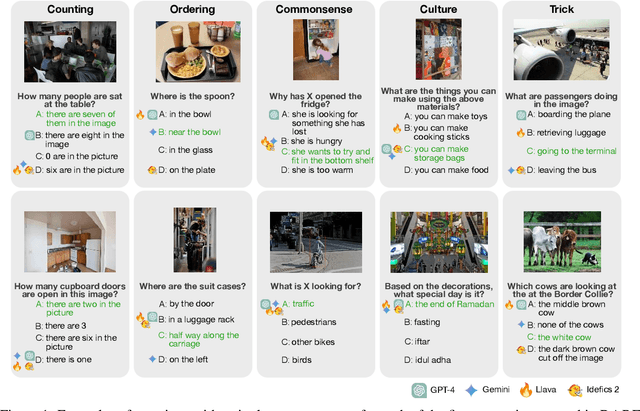
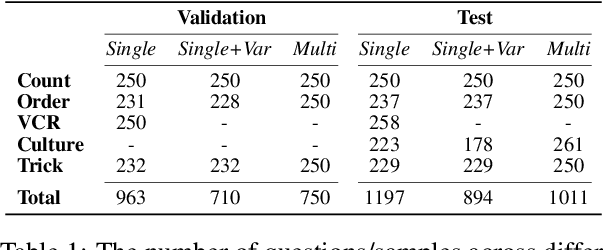

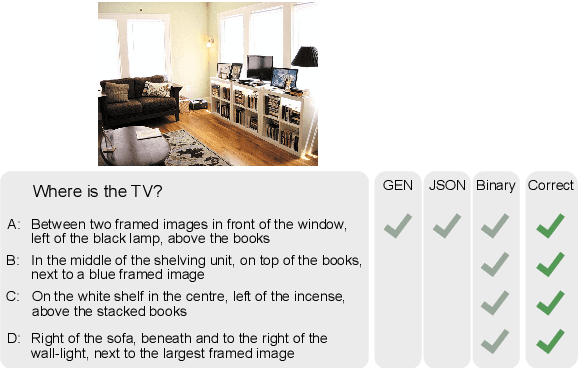
Abstract:Vision Language Models (VLMs) extend remarkable capabilities of text-only large language models and vision-only models, and are able to learn from and process multi-modal vision-text input. While modern VLMs perform well on a number of standard image classification and image-text matching tasks, they still struggle with a number of crucial vision-language (VL) reasoning abilities such as counting and spatial reasoning. Moreover, while they might be very brittle to small variations in instructions and/or evaluation protocols, existing benchmarks fail to evaluate their robustness (or rather the lack of it). In order to couple challenging VL scenarios with comprehensive robustness evaluation, we introduce DARE, Diverse Visual Question Answering with Robustness Evaluation, a carefully created and curated multiple-choice VQA benchmark. DARE evaluates VLM performance on five diverse categories and includes four robustness-oriented evaluations based on the variations of: prompts, the subsets of answer options, the output format and the number of correct answers. Among a spectrum of other findings, we report that state-of-the-art VLMs still struggle with questions in most categories and are unable to consistently deliver their peak performance across the tested robustness evaluations. The worst case performance across the subsets of options is up to 34% below the performance in the standard case. The robustness of the open-source VLMs such as LLaVA 1.6 and Idefics2 cannot match the closed-source models such as GPT-4 and Gemini, but even the latter remain very brittle to different variations.
M2QA: Multi-domain Multilingual Question Answering
Jul 01, 2024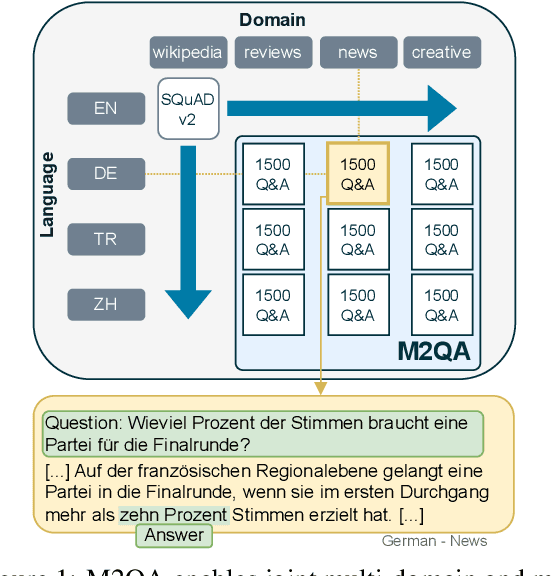

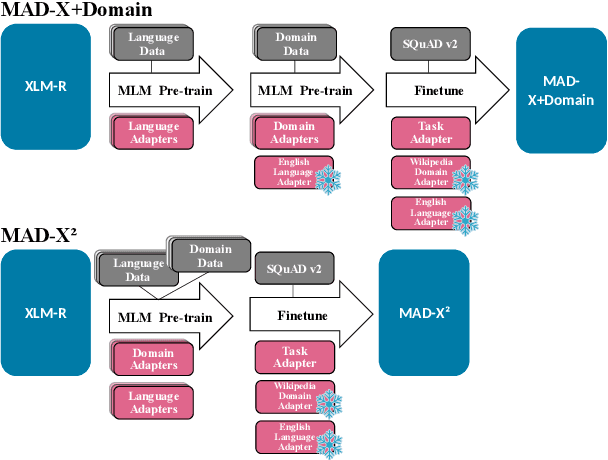

Abstract:Generalization and robustness to input variation are core desiderata of machine learning research. Language varies along several axes, most importantly, language instance (e.g. French) and domain (e.g. news). While adapting NLP models to new languages within a single domain, or to new domains within a single language, is widely studied, research in joint adaptation is hampered by the lack of evaluation datasets. This prevents the transfer of NLP systems from well-resourced languages and domains to non-dominant language-domain combinations. To address this gap, we introduce M2QA, a multi-domain multilingual question answering benchmark. M2QA includes 13,500 SQuAD 2.0-style question-answer instances in German, Turkish, and Chinese for the domains of product reviews, news, and creative writing. We use M2QA to explore cross-lingual cross-domain performance of fine-tuned models and state-of-the-art LLMs and investigate modular approaches to domain and language adaptation. We witness 1) considerable performance variations across domain-language combinations within model classes and 2) considerable performance drops between source and target language-domain combinations across all model sizes. We demonstrate that M2QA is far from solved, and new methods to effectively transfer both linguistic and domain-specific information are necessary. We make M2QA publicly available at https://github.com/UKPLab/m2qa.
Scaling Sparse Fine-Tuning to Large Language Models
Feb 02, 2024Abstract:Large Language Models (LLMs) are difficult to fully fine-tune (e.g., with instructions or human feedback) due to their sheer number of parameters. A family of parameter-efficient sparse fine-tuning methods have proven promising in terms of performance but their memory requirements increase proportionally to the size of the LLMs. In this work, we scale sparse fine-tuning to state-of-the-art LLMs like LLaMA 2 7B and 13B. We propose SpIEL, a novel sparse fine-tuning method which, for a desired density level, maintains an array of parameter indices and the deltas of these parameters relative to their pretrained values. It iterates over: (a) updating the active deltas, (b) pruning indices (based on the change of magnitude of their deltas) and (c) regrowth of indices. For regrowth, we explore two criteria based on either the accumulated gradients of a few candidate parameters or their approximate momenta estimated using the efficient SM3 optimizer. We experiment with instruction-tuning of LLMs on standard dataset mixtures, finding that SpIEL is often superior to popular parameter-efficient fine-tuning methods like LoRA (low-rank adaptation) in terms of performance and comparable in terms of run time. We additionally show that SpIEL is compatible with both quantization and efficient optimizers, to facilitate scaling to ever-larger model sizes. We release the code for SpIEL at https://github.com/AlanAnsell/peft and for the instruction-tuning experiments at https://github.com/ducdauge/sft-llm.
Adapters: A Unified Library for Parameter-Efficient and Modular Transfer Learning
Nov 18, 2023Abstract:We introduce Adapters, an open-source library that unifies parameter-efficient and modular transfer learning in large language models. By integrating 10 diverse adapter methods into a unified interface, Adapters offers ease of use and flexible configuration. Our library allows researchers and practitioners to leverage adapter modularity through composition blocks, enabling the design of complex adapter setups. We demonstrate the library's efficacy by evaluating its performance against full fine-tuning on various NLP tasks. Adapters provides a powerful tool for addressing the challenges of conventional fine-tuning paradigms and promoting more efficient and modular transfer learning. The library is available via https://adapterhub.ml/adapters.
UKP-SQUARE: An Online Platform for Question Answering Research
Mar 28, 2022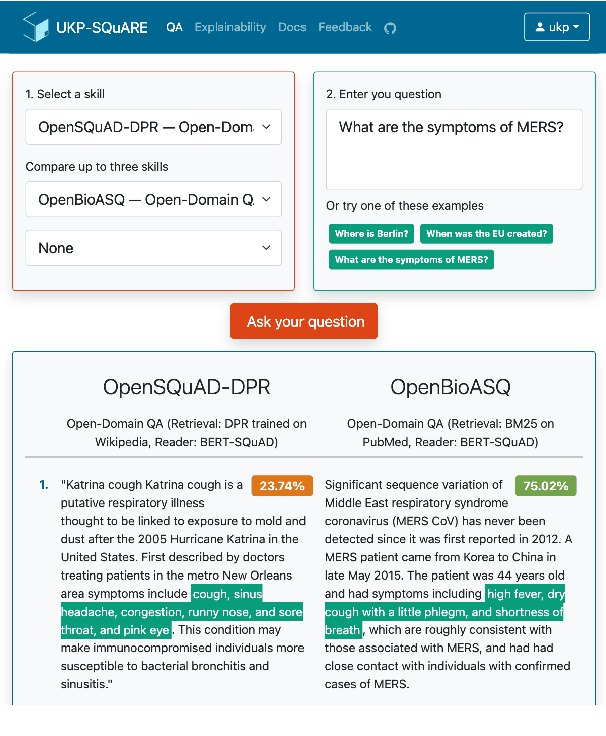
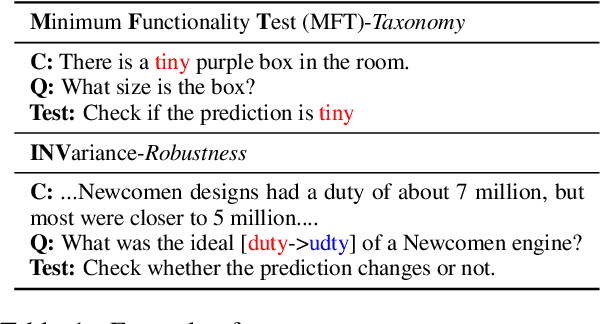
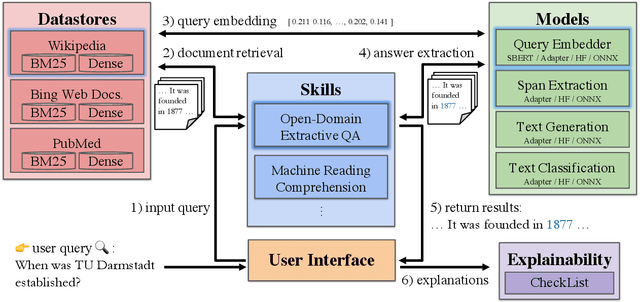
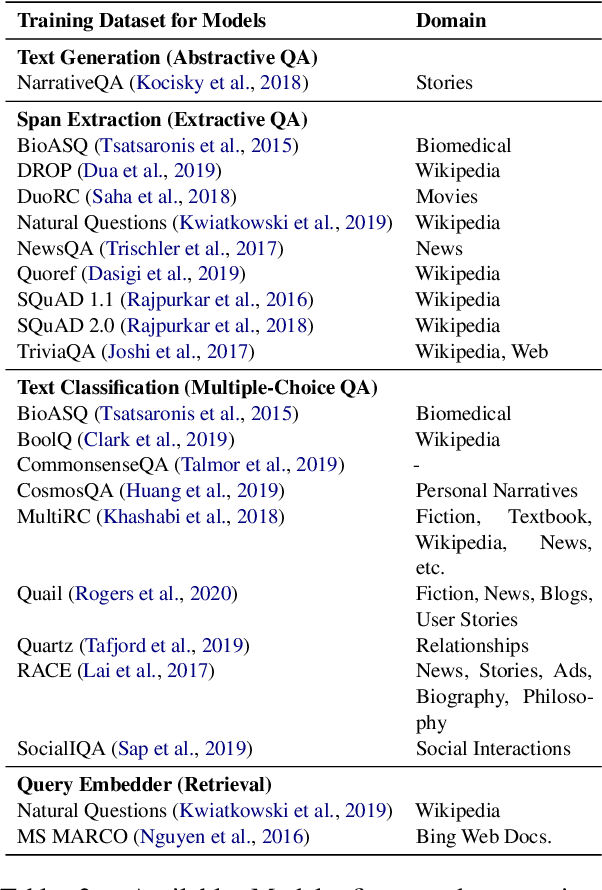
Abstract:Recent advances in NLP and information retrieval have given rise to a diverse set of question answering tasks that are of different formats (e.g., extractive, abstractive), require different model architectures (e.g., generative, discriminative), and setups (e.g., with or without retrieval). Despite having a large number of powerful, specialized QA pipelines (which we refer to as Skills) that consider a single domain, model or setup, there exists no framework where users can easily explore and compare such pipelines and can extend them according to their needs. To address this issue, we present UKP-SQUARE, an extensible online QA platform for researchers which allows users to query and analyze a large collection of modern Skills via a user-friendly web interface and integrated behavioural tests. In addition, QA researchers can develop, manage, and share their custom Skills using our microservices that support a wide range of models (Transformers, Adapters, ONNX), datastores and retrieval techniques (e.g., sparse and dense). UKP-SQUARE is available on https://square.ukp-lab.de.
 Add to Chrome
Add to Chrome Add to Firefox
Add to Firefox Add to Edge
Add to Edge